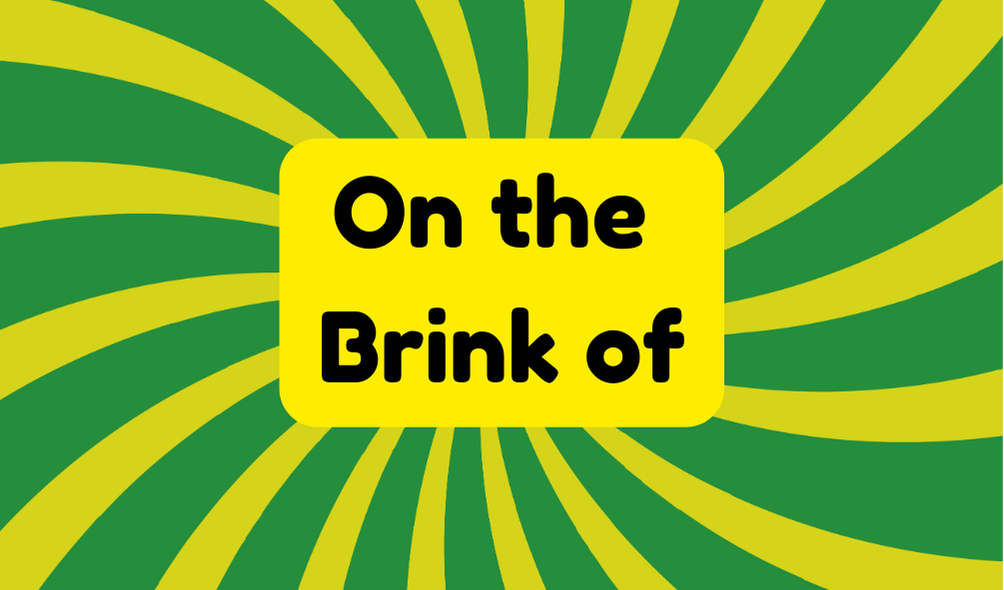The phrase "on the brink of" signifies a moment filled with potential change or danger. Originating in medieval English and gaining popularity in the 17th century, it reflects pivotal human experiences. Commonly used in contexts like "on the brink of disaster" or "on the brink of success," it conveys urgency and tension. This idiom remains relevant today, illustrating high-stakes scenarios in various life situations. Discovering its nuances can enhance one's expressions and understanding of critical moments.
Synonyms
In the sphere of language, synonyms can often illuminate the nuances of expression, offering alternatives that enrich communication. Exploring potential alternatives for the phrase "on the brink of" reveals context variations that can enhance understanding. Recognizing the subtleties in these synonyms is essential for effective dialogue.
- "On the verge of"
- "At the edge of"
- "In proximity to"
- "Close to"
Each option carries its own connotation, shaping meaning according to the situation. As language enthusiasts engage with these terms, they must consider their implications, ensuring clarity and fostering deeper connections through attentive expression.
Example of Sentences
Examples of sentences showcasing the phrase "on the brink of" serve to illustrate its versatility and contextual richness. These phrases often capture high-stakes scenarios and pivotal moments that elicit urgency. The following examples embody this concept:
- The team was on the brink of victory at the championship.
- She stood on the brink of a career-defining opportunity.
- The country was on the brink of a major economic collapse.
- He found himself on the brink of confessing his long-held secret.
Such examples remind readers that moments of decision and change beckon, highlighting the importance of timing and awareness in life's unpredictable journey.
Origin
The phrase "on the brink of" carries a historical significance that reflects the urgency of pivotal moments throughout human experience. Tracing its origins to medieval English, this expression began to gain traction in the 17th century, encapsulating a dramatic tension relevant to its time. The phrase evolution parallels significant societal shifts, underscoring moments when decision and action were critical. Its historical context speaks to our nature—often teetering between outcomes. Understanding this evolution not only highlights our linguistic journey but also invites a reflection on how language shapes perceptions and actions in contemporary scenarios, infusing a sense of immediacy and importance.
Collocations
Collocations associated with the phrase "on the brink of" reveal how language can shape understanding in everyday situations. This brink terminology often signals critical moments laden with emotion and anticipation. However, it is essential to recognize the nuanced applications of this figurative language. Common collocations include:
- On the brink of disaster
- On the brink of change
- On the brink of success
- On the brink of collapse
Such choices enhance the phrase's versatility, offering clarity in context. Yet, readers must discern when these expressions reflect genuine urgency rather than hyperbole, ensuring effective communication in both casual and formal dialogues.
How to Use in Everyday Language
Understanding how to incorporate the phrase "on the brink of" in everyday language can enhance communication and clarity in various situations. This common phrase captures moments of tension, implying that something significant is about to happen. For instance, one might say, "She was on the brink of a breakthrough," during discussions about innovation. By weaving such expressions into conversation, individuals can convey urgency and importance. However, care must be taken to guarantee clarity; misusing the phrase can lead to ambiguity. Ultimately, mastering this idiom can enrich everyday dialogue, helping individuals articulate nuanced feelings and pivotal moments more effectively.
Why Is It Still Relevant Today?
While many phrases become outdated as language evolves, "on the brink of" remains relevant today for various reasons. Its current applications extend across personal decisions and professional contexts, illustrating moments teetering on significant change. This phrase carries cultural significance, encapsulating feelings of tension and urgency that resonate in contemporary discourse, from politics to business. As society faces rapid transformations, the concept of being "on the brink" evokes a sense of anticipation, urging individuals to act decisively. This phrase, rooted in drama, effectively captures the precariousness of modern life, making it an enduring tool for expression amidst shifting realities.







